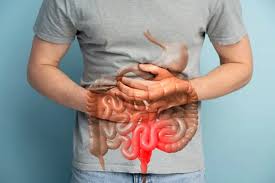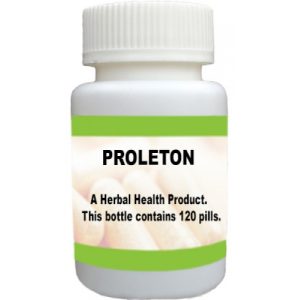Rectal prolapse is a condition that can cause significant discomfort, embarrassment, and disruption to daily life. While surgery is often recommended for severe cases, many people seek Rectal Prolapse Treatment at Home to avoid invasive procedures and long recovery periods. Fortunately, with the right lifestyle adjustments, diet, exercises, and herbal remedies, it is possible to manage rectal prolapse naturally and restore comfort without surgery.
Rectal Prolapse Natural Treatment methods that can help strengthen your rectal muscles, reduce symptoms, and promote healing—safely and naturally.
Understanding Rectal Prolapse
Rectal prolapse occurs when part or all of the rectum (the final section of the large intestine) slips outside the anus. It can be partial, where only the inner lining protrudes, or complete, where the entire wall of the rectum extends outward.
Common Symptoms Include:
- A visible bulge from the anus after bowel movements
- A sensation of incomplete evacuation
- Pain or discomfort in the rectal area
- Mucus discharge or bleeding
- Fecal incontinence (inability to control bowel movements)
Causes of Rectal Prolapse
Rectal prolapse can develop due to several underlying factors:
- Chronic constipation and straining
- Weak pelvic floor muscles
- Aging and muscle degeneration
- Childbirth trauma
- Nerve damage or spinal injury
- Long-term diarrhea
- Previous pelvic surgeries
The condition is more common in women, particularly those over 50, but it can also affect men and children.

Why Choose a Natural Approach?
While surgery can correct prolapse in severe cases, it comes with risks such as infection, pain, and long recovery time. For mild to moderate cases, Rectal Prolapse Treatment at Home offers a safer and more sustainable alternative.
Rectal Prolapse Natural Treatment focuses on improving rectal health through:
- Strengthening pelvic floor muscles
- Preventing constipation
- Reducing strain during bowel movements
- Restoring tissue integrity naturally
These home-based remedies can help manage symptoms, improve bowel control, and reduce the chances of prolapse progression.
1. Dietary Adjustments: The Foundation of Healing
A healthy digestive system is the cornerstone of effective Rectal Prolapse Treatment at Home. Constipation and hard stools are major causes of straining, which worsens prolapse. A fiber-rich diet can make bowel movements smoother and easier.
High-Fiber Foods to Include:
- Whole grains (brown rice, oats, barley)
- Fresh fruits (apples, pears, bananas, prunes)
- Leafy vegetables (spinach, kale, broccoli)
- Legumes (lentils, beans, chickpeas)
- Nuts and seeds (chia, flaxseed, almonds)
Hydration Is Key
Drink at least 8–10 glasses of water daily to soften stool and prevent constipation. Warm water early in the morning can stimulate bowel movement naturally.
Avoid These Foods:
- Processed and fried foods
- Refined sugar and white flour
- Excessive dairy and red meat
- Caffeine and alcohol (they can dehydrate the body)
By maintaining a healthy diet, you’ll reduce pressure on your rectum and allow natural healing to occur.
2. Pelvic Floor Exercises (Kegels)
Kegel exercises are one of the most powerful Rectal Prolapse Natural Treatments. They help strengthen the pelvic floor muscles that support your rectum, bladder, and uterus.
How to Perform Kegels:
- Identify the correct muscles by stopping urination midstream.
- Once you’ve located them, tighten the muscles for 5 seconds, then relax for 5 seconds.
- Repeat this 10–15 times, three times a day.
- Gradually increase the hold time to 10 seconds.
Consistency is key. Over time, Kegels improve rectal tone, reduce prolapse severity, and prevent worsening of symptoms.
3. Manage Bowel Habits Wisely
The way you pass stool has a significant impact on rectal health. Following proper bowel habits is a vital part of Rectal Prolapse Treatment at Home.
Tips for Better Bowel Habits:
- Avoid Straining: Never push hard during bowel movements. Relax and take your time.
- Use a Squatting Position: Using a footstool to elevate your feet can align your colon naturally, making defecation easier.
- Go When You Feel the Urge: Ignoring the urge to pass stool can cause constipation.
- Maintain Regularity: Try to use the bathroom at the same time daily, preferably in the morning.
Developing good toilet habits prevents additional stress on the rectal muscles and supports long-term recovery.
4. Herbal Remedies for Rectal Prolapse
Nature offers several herbs that can strengthen tissues, improve circulation, and reduce inflammation. These are essential for an effective Rectal Prolapse Natural Treatment plan.
Top Herbal Remedies:
- Triphala (Ayurvedic Remedy)
A powerful blend of three fruits—amla, bibhitaki, and haritaki—Triphala is widely used in Ayurveda to improve digestion and relieve constipation. It cleanses the intestines gently and reduces strain during bowel movements.
How to Use:
Take 1 teaspoon of Triphala powder mixed in warm water before bedtime.
- Witch Hazel
Witch hazel is known for its astringent properties that help tighten and tone tissues. Applying witch hazel around the rectal area can reduce swelling and discomfort.
How to Use:
Soak a cotton pad in witch hazel and apply gently to the affected area twice daily.
- Aloe Vera
Aloe vera has soothing and anti-inflammatory effects. It can help relieve irritation and promote healing of rectal tissues.
How to Use:
Drink 1 tablespoon of pure aloe vera juice daily or apply aloe gel externally to the rectal area.
- Butcher’s Broom
This herb improves circulation and strengthens blood vessel walls, which may reduce rectal swelling and discomfort.
How to Use:
Available in capsule or tea form. Follow label instructions for dosage.
- Slippery Elm
Slippery elm coats the digestive tract with a protective layer, easing bowel movements and reducing irritation.
How to Use:
Mix 1 teaspoon of slippery elm powder in warm water and drink once daily.
5. Home Remedies to Ease Discomfort
In addition to herbs, several home remedies can bring quick relief and support healing.
a. Sitz Baths
Sitting in a warm water bath (up to hip level) for 15–20 minutes several times a day can soothe irritation, reduce swelling, and promote blood flow to the rectal area.
b. Cold Compress
Apply a cold pack or chilled cloth to the rectum for 10 minutes to reduce inflammation and numb pain.
c. Coconut Oil
Coconut oil has natural antimicrobial and moisturizing properties. Applying a small amount can ease discomfort and prevent infection.
d. Epsom Salt Baths
Add 2 cups of Epsom salt to warm bathwater. This helps relax muscles and alleviate pain associated with prolapse.
Natural Remedies for Rectal Prolapse enhance comfort while supporting the healing process naturally.
6. Lifestyle Changes for Long-Term Relief
Lasting improvement requires consistent lifestyle changes that promote rectal health and prevent recurrence.
a. Maintain a Healthy Weight
Excess body weight increases pressure on pelvic organs. A balanced diet and light exercise can help reduce strain on the rectum.
b. Exercise Regularly
Gentle exercises like yoga, walking, and swimming improve blood flow and strengthen core muscles. Avoid heavy lifting or high-impact workouts that may worsen prolapse.
c. Avoid Prolonged Sitting
Sitting for long hours, especially on hard surfaces, puts pressure on the rectal area. Take short breaks every hour to stand and stretch.
d. Control Chronic Coughing
Persistent coughing can weaken pelvic muscles. Treat underlying respiratory conditions to prevent strain.
e. Stop Smoking
Smoking can lead to chronic coughing and poor tissue healing. Quitting helps support overall recovery.
By adopting these habits, you can prevent rectal prolapse from worsening and improve your overall quality of life.
7. Yoga Poses for Rectal Prolapse
Yoga can be an excellent form of Rectal Prolapse Natural Treatment because it strengthens the pelvic floor and promotes relaxation.
Recommended Yoga Poses:
- Mula Bandha (Root Lock): Strengthens pelvic muscles.
- Setu Bandhasana (Bridge Pose): Improves blood flow to the pelvis.
- Viparita Karani (Legs-Up-the-Wall Pose): Relieves pelvic pressure.
- Tadasana (Mountain Pose): Improves posture and core strength.
- Balasana (Child’s Pose): Soothes the lower back and reduces rectal tension.
Practicing yoga daily enhances muscle control and reduces the recurrence of prolapse.
8. When to Seek Medical Help
While Rectal Prolapse Treatment at Home can be effective for mild cases, it’s important to recognize when professional help is needed.
Consult a doctor if you experience:
- Severe pain or bleeding
- Inability to control bowel movements
- A large protrusion that doesn’t retract
- Signs of infection (fever, redness, or pus)
In such cases, a medical evaluation ensures proper management and prevents complications.
9. Combining Natural and Medical Approaches
For many individuals, a combination of natural remedies and medical guidance yields the best results. Non-surgical options such as biofeedback therapy, stool softeners, and physiotherapy can complement Rectal Prolapse Natural Treatment for enhanced healing.
10. Prevention Is Better Than Cure
Preventing rectal prolapse is possible by maintaining healthy bowel habits and pelvic strength.
Simple Preventive Tips:
- Eat fiber-rich foods daily
- Stay hydrated
- Avoid straining during bowel movements
- Do regular Kegel exercises
- Manage chronic cough or constipation early
- Maintain a healthy weight
By making these preventive steps part of your daily routine, you can avoid the recurrence of prolapse and enjoy long-term rectal health.
Conclusion
Living with rectal prolapse can be challenging, but with the right natural care, recovery is possible without surgery. By adopting Rectal Prolapse Treatment at Home, including dietary changes, herbal remedies, pelvic floor exercises, and proper bowel habits, you can restore comfort and improve your quality of life.
Rectal Prolapse Natural Treatment empowers you to take charge of your health safely and effectively—helping your body heal naturally, strengthen tissues, and prevent future complications.
Remember, patience and consistency are key. With regular care, awareness, and a healthy lifestyle, you can manage rectal prolapse naturally and regain your confidence and comfort—without ever needing the knife.

